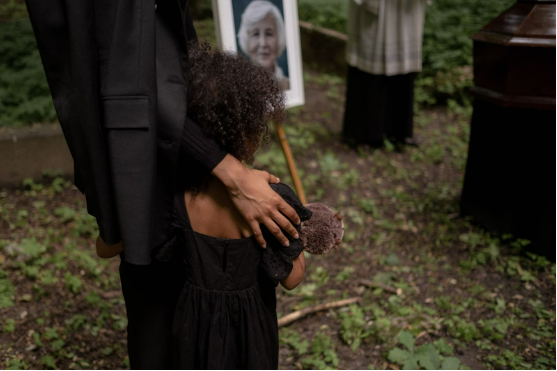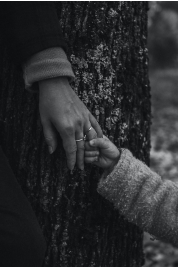Before cremations, as part of the cremation services offered in Sterling Heights, MI, the mourning process for someone who has died begins. Mourning the loss of a loved one serves a purpose for living, and the process should eventually accomplish four very important tasks.
Mourning does not have a finite time limit. Everyone mourns for whatever time it takes them to complete the process. There is no right or wrong way to mourn. Just because your mourning doesn’t look like someone else’s mourning (or theirs doesn’t look like yours) doesn’t mean either of you are doing something wrong.
The five stages of grief made famous by Elizabeth Kubler-Ross don’t always happen in a specific order and don’t always happen the same way to each person.
Mourning is a unique process for each individual, but the tasks that must be accomplished by mourning the death of a loved one are the same.
The first task of mourning is accepting the reality of the loss when a loved one has died. This acceptance doesn’t mean that all the realities that accompany death are understood or accepted, but it does mean that those who are mourning have recognized that they’ve experienced a permanent loss in this life.
The next task of mourning is to work through the pain of grief. How people do accomplish this task and how long it takes them to accomplish it is different from person to person.
No one enjoys having to deal with emotional pain, but for some people, it is so difficult that they either ignore the pain, suppress the pain, or numb the pain. None of these approaches to emotional pain is healthy.
Ignoring emotional pain doesn’t make it go away. Suppressing emotional pain doesn’t lessen its effect. And numbing emotional pain is not only emotionally unhealthy but also physically unhealthy.
Eventually, the pain of grief surfaces and must be addressed and dealt with because it can’t be ignored, suppressed, or numbed forever.
It’s important to recognize that working through grief takes some people much longer than others. So just because somebody else is working through the pain of grief more slowly than others doesn’t mean they are not working through it. Be careful not to tell somebody that they need to move on and get over it because you really don’t know how they’re working through this task.
The third task of mourning is adapting to a new environment where a loved one is absent. This can be extremely difficult, especially for spouses of and for children who were primary caregivers for the deceased loved one.
This new environment includes a permanent void that no one and nothing can fill. It’s an environment with practical barriers that may include finances, property, and companionship, among other things.

Most grief experts strongly recommend that any big decisions (especially regarding finances and property), be put on hold for at least a year after a loved one has died. This isn’t a promise that everything will be fine in a year, but there will be more objective clarity in decision-making.
The last task of mourning is to find an enduring connection with the deceased loved one while beginning a new life without them. This connection may include adding rituals that honor their loved one, such as laying flowers at their grave each year on their birthday and being comfortable regularly thinking about and sharing memories of them.
For information about cremation services in Sterling Heights, MI, our caring and knowledgeable staff at Lee-Ellena Funeral Home is here to assist you.







 be sitting above the cemetery plot where your loved one will be buried because they’ll see the dirt that has been dug out around it.
be sitting above the cemetery plot where your loved one will be buried because they’ll see the dirt that has been dug out around it.


